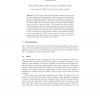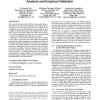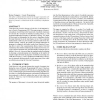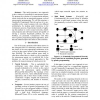146 search results - page 3 / 30 » A Comparison of Bloat Control Methods for Genetic Programmin... |
AE
2005
Springer
13 years 11 months ago
2005
Springer
Most of the Evolutionary Algorithms handling variable-sized structures, like Genetic Programming, tend to produce too long solutions and the recombination operator used is often co...
GECCO
2008
Springer
13 years 7 months ago
2008
Springer
The crossover bias theory for bloat [18] is a recent result which predicts that bloat is caused by the sampling of short, unfit programs. This theory is clear and simple, but it ...
GECCO
2005
Springer
13 years 11 months ago
2005
Springer
Code bloat, the excessive increase of code size, is an important issue in Genetic Programming (GP). This paper proposes a theoretical analysis of code bloat in the framework of sy...
EUROGP
1998
Springer
13 years 10 months ago
1998
Springer
The problem of evolving, using mutation, an artificial ant to follow the Santa Fe trail is used to study the well known genetic programming feature of growth in solution length. Kn...
EUROGP
1999
Springer
13 years 10 months ago
1999
Springer
– This article presents a new approach to the evolution of controllers for autonomous agents. We propose the evolution of a connectionist structure where each node has an associa...




